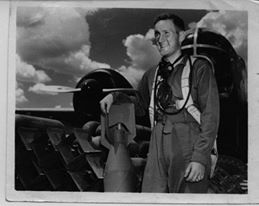I remember and honor my Dad. My brother. My classmates. All dear to me and now gone.
Did they die honorably?
My classmate, Bruce, fought in Viet Nam. His father had been a prisoner of war in Japan, came home to parades and feasts, wrapped in national and family pride. Bruce served well, was honorably discharged, came home to shame and jeers. He climbed a mountain and blew his brains out.
My brother, Steve, was in that altercation as well, stationed in Thailand. His crew was ambushed and driven into a rice paddy. Steve survived, barely, after spending several days in the water, bitten by snakes and all manner of terrifying denizens of the swamp, before he was rescued. He came home—was never again the brilliant, joy-filled, family clown that I remember “before Viet Nam”. He stayed high or drunk often for the rest of his life.
And then there’s Dad. I turned five the day he was buried in Arlington Cemetery. I was evidently so busy being a five-year-old that Mom opted to leave me with a sitter along with baby brother Steve. I thought Dad had deserted my Mother, that he did not want to be with me.
He left her to suffer with three young children, to do everything while he went off to “serve his country.” What does a five-year-old know about war, country, service? Friends or enemies? Not so much. They make up what happened and believe it to be true well past when it made sense. I was in my 50s before I was able to release the anger my toddler-self dragged into my adult life.
Until I was seven, I did not know my dad was gone, not ever coming back. Imagine my shock when a neighbor said to me, “It must be hard, being without a Dad.” Without a Dad? You mean… he isn’t coming back. I started to walk home and fainted in the middle of the road, was in a coma for the rest of the day.
I had a sad mom and no dad. That became my story for decades: sad mom, no dad. That sounds like a rough life, no? I survived, loved by brothers and mother, surrounded by the rest of my family, always with a home and meals to eat and clothes to wear.
How do children on this planet today cope with shock and loss? If parents are still present and whole, they provide the support and nurturing that makes it possible to heal. If their home is still in place, they have that comfort, knowing they still have their favorite teddy bear and bed-time stories and comfort foods.
Imagine for a moment what other children go through. Parents and siblings are gone. Their home is either destroyed or on a different part of the planet. Adults around them treat them as beings with no value. They have no shelter, no medical care, no steady source of food or water. Children are held in cages at the border, separated from family, abused sexually, not knowing what’s happening, what their future might hold. Children are recruited to fight wars, to perish in wars, to kill other children.
Imagine.
I can’t imagine. I made it through my life relatively unscathed. What do I have to offer children who are victims of war, victims of natural disasters, victims? I have no idea what these children must see as “normal.” They are not likely to be found in our schools or churches, places that used to be safe. Many don’t have that luxury.
Find organizations that provide support for children and families in war-torn areas, places affected by natural disasters. UNICEF, UNESCO, religious and non-governmental organizations all over the world—keep looking until the one that moves you, that inspires you shows up. Support it—in whatever way we can, we must.












Read 4 comments and reply